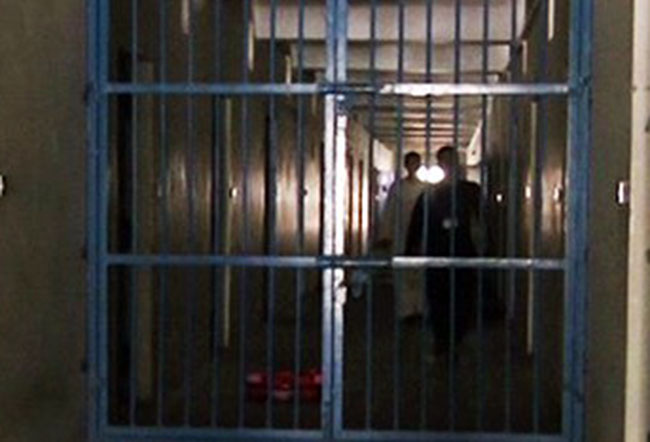One is free to exercise his rights to life, liberty and property without restrictions but on the basis of law. Afghanistan has accepted the United Nations Charter and the Universal Declaration of Human Rights (UDHR) as stated in the Constitution’s preamble. The UDHR underlines men’s “inherent dignity” and natural and “inalienable rights” to a great extent and denies torture or “cruel, inhuman or degrading treatment or punishment.”
It is believed that men’s equality in dignity and rights on the grounds of being human, irrespective of their race, sex, color or creed, is a universal principle which is accepted all around the globe, with some exceptions. One, including the prisoners, is not supposed to be degraded or tortured at all, mainly in modern law which is based on democracy. Afghanistan is also a democratic country with updated legal system. Therefore, torture and humiliating the prisoners are forbidden. The constitution states in article 29 as, “Persecution of human beings shall be forbidden. No one shall be allowed to torture or order torture, even for discovering the truth from another individual who is under investigation, arrest, detention or has been convicted to be punished. Punishment contrary to human dignity shall be prohibited.”
Contrary to the law, prisoners are tortured in jails mentally and physically and, therefore, suffer from psychological harm. In other words, despite having signed the International Convention against Torture in 1985, systematic torture continues in Afghanistan’s prisons.
According to statistics of United Nations Assistance Mission in Afghanistan (UNAMA) 278 detainees out of 790 detainees were tortured in Afghan jails. The UNAMA conducted investigations during 2013 and 2014 and assessed 128 detention centers.
On December 12, 1997, by resolution 52/149, the UN General Assembly proclaimed June 26 the United Nations International Day in Support of Victims of Torture, with a view to the total eradication of torture and the effective functioning of the Convention against Torture and Other Cruel, Inhuman or Degrading Treatment or Punishment.
Marking June 26, Afghanistan’s Independent Human Rights Commission said that the prisoners were being prosecuted in the jails – this act is in direct conflict with national and international laws. Ill-fatedly, the prisoners’ human rights are violated in Afghanistan on a large scale. The arbitrary detention, physical and mental tortures, keeping them unaware of their legal rights and keeping them in prisons more than the legal period are the current challenges going on across the country. To put it succinctly, the judicial system is deep in the grip of corruption and law is not enforced by the book.
In addition to the miscarriage of justice, some individuals commit crime with impunity. Although discrimination or distinction on the basis of one’s social or political status is against law, the rich and the influential hardly stand trial. So, in terms of daily practices, some are considered beyond law. It is really outrageous to see that some criminals are at large while the accused and suspects are mistreated in jails.
It is self-explanatory that police, prosecutors and judges are supposed to put justice into practice so as to protect citizens’ rights and dignity. However, when they themselves engage in criminal acts in the name of justice, the society will fall in the quagmire of corruption – this is the main reason behind Afghanistan’s ill fame in international arena.
It is worth saying that moral values are in decline in social life, including the judicial system. In another item, since moral standards have no legal sanctions, they are widely violated. Whenever the values are on the verge of erosion in a community, people’s rights and dignity will be at stake. Currently, people hardly listen to the call of their conscience and, therefore, corruption is rife in the country. Hence, the public suffer not only in prisons but also on the street, on the way to school, etc. Similarly, their rights are trampled upon, in one way or another, by different individuals and groups.
The philosophy behind imprisoning criminals is not to fill them with a sense of vengeance and hatred but to train them and revive humanity in their soul. However, torturing the prisoners will be counterproductive and make them more violent than before. In a nutshell, rather than preventing from crime and corruption, mistreating and prosecuting prisoners will increase the graph of criminal acts – which is against the philosophy of establishing law.
The government is committed to “Establish an order based on the peoples’ will and democracy; form a civil society void of oppression, atrocity, discrimination as well as violence, based on rule of law, social justice, protecting integrity and human rights, and attaining peoples’ freedoms and fundamental rights.” So, government is the only gleam of hope for the public to respect and protect their rights based on the country’s Constitution. In short, citizens’ rights will be vulnerable, unless corruption is rooted out from the government’s machinery.
The aforementioned challenges stymie the process of democratization and put the government’s justice under question. So, the government has to enforce the law and remove corruption from judicial system so as to protect the rights and dignity of the citizens. Moreover, the human rights of prisoners must be observed according to the law and those who torture the prisoners should be brought to justice. The detention centers should be humanized.
Home » Opinion » Violation of Prisoners’ Rights
Violation of Prisoners’ Rights
| Hujjatullah Zia

